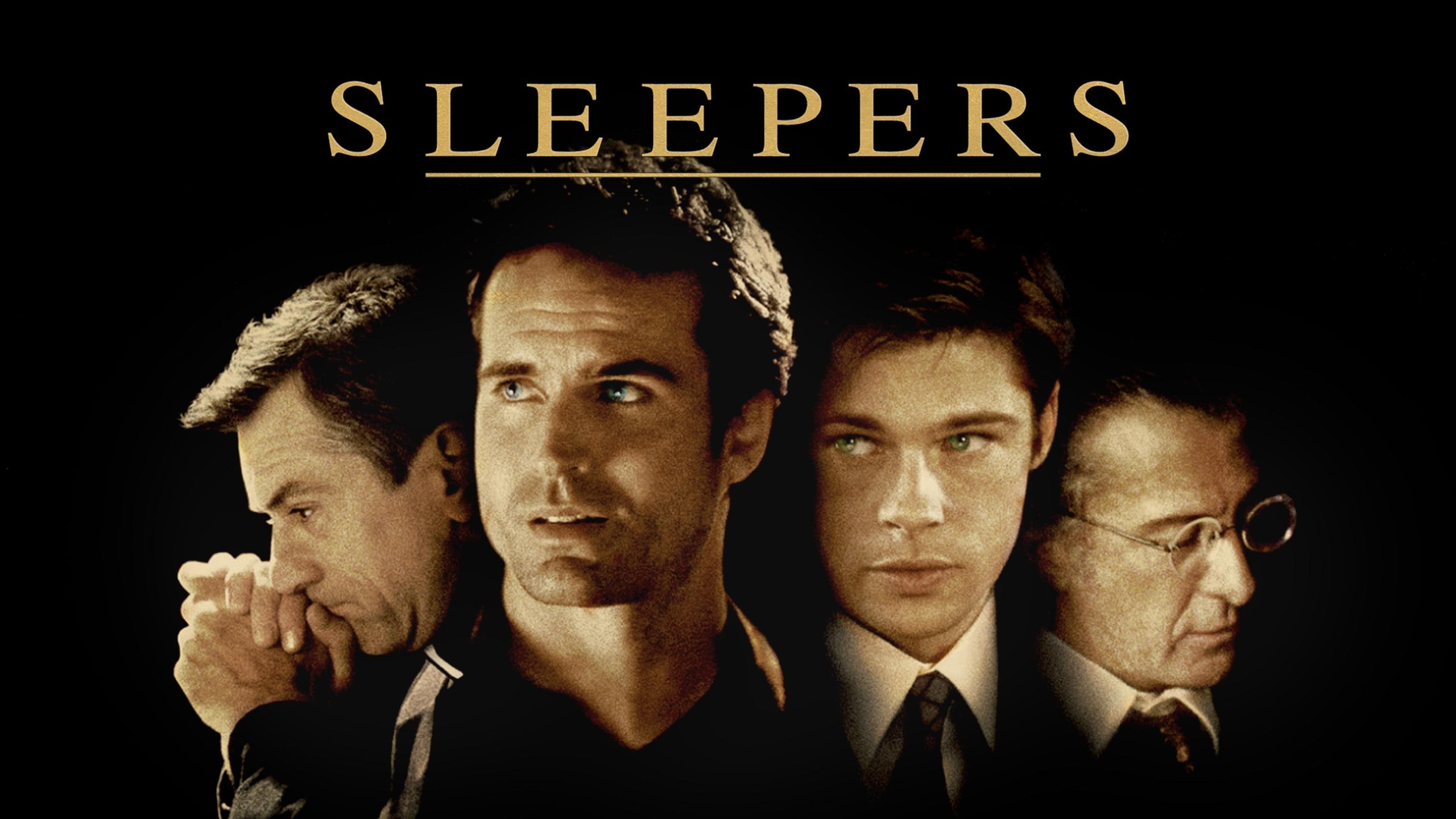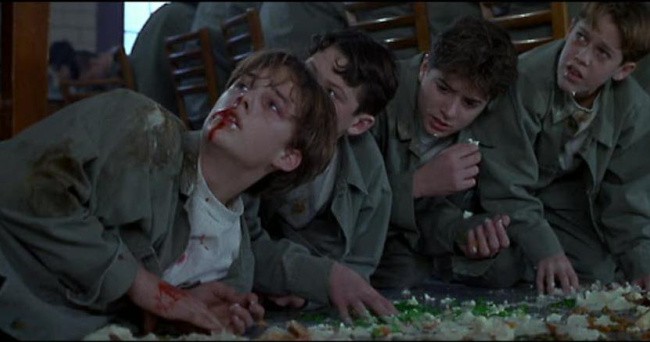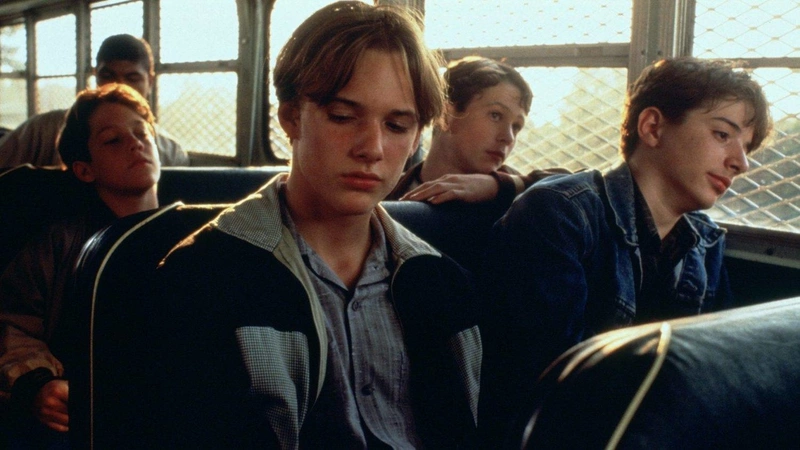Sleepers (1996)

Review of Sleepers (1996)
Sleepers (1996), directed by Barry Levinson and based on the 1995 novel by Lorenzo Carcaterra, is a dark and emotionally charged drama that delves into the lives of four childhood friends who are profoundly impacted by a traumatic event and the subsequent consequences that echo throughout their lives. The film, which features an ensemble cast of renowned actors such as Robert De Niro, Dustin Hoffman, Kevin Bacon, and Brad Pitt, explores themes of justice, revenge, guilt, and the lasting effects of abuse, all set against the backdrop of 1960s New York City.
While Sleepers may not always be easy to watch due to its heavy subject matter and moments of stark brutality, it is a deeply compelling film that raises difficult questions about morality, redemption, and the human capacity for both cruelty and compassion. Through its gripping story, strong performances, and intense emotional undercurrents, Sleepers stands as a testament to the power of cinema to confront painful realities while still delivering a story that is both engaging and thought-provoking.
Plot: A Traumatic Event and Its Aftermath
The film centers around four boys — Shakes (Brad Renfro), Michael (Jonathan Tucker), John (Geoffrey Wigdor), and Tommy (Joseph Perrino) — who grow up in the Hell’s Kitchen neighborhood of New York City. They are childhood friends, united by a strong bond of loyalty and camaraderie. However, their lives are forever altered when they are involved in a prank that goes terribly wrong.
The boys, as a part of their innocent mischief, steal a hot dog cart and wind up in a dangerous situation. As punishment, they are sent to a correctional facility known as Wilkinson Home for Boys, a place run by sadistic guards and deeply corrupt officials. It is here that the boys experience horrific abuse at the hands of the prison guards, including physical and sexual violence. The most brutal of these guards is a man named Officer Nokes (Kevin Bacon), whose actions leave deep psychological scars on the boys.
Fast-forward a decade later, and the four boys are now young men, each struggling to cope with the trauma of their childhood. Shakes (now played by Jason Patric) has grown into an aspiring writer, while Michael (Brad Pitt), John (Billy Crudup), and Tommy (Ron Eldard) have taken different paths in life. Michael, haunted by the memory of what happened in Wilkinson, becomes a tough, embittered man, while John and Tommy have drifted into lives marked by violence and crime.
When the boys’ paths cross again, a plan of revenge begins to take shape. Shakes, now working as a writer, finds himself drawn into the lives of his old friends. Tommy, seeking justice for the years of abuse, decides to take matters into his own hands and confront the men who were responsible for the horrors at Wilkinson. What follows is a tense and morally complex journey, as the characters wrestle with the consequences of their actions, the cost of vengeance, and the possibility of redemption.
Themes: Justice, Revenge, and the Long-Term Effects of Trauma
At its core, Sleepers is a film about justice — not just the legal kind, but the moral and emotional kinds as well. The central event that unites the characters is the abuse they suffered in Wilkinson, and the entire narrative hinges on their desire for revenge. However, the film complicates the idea of justice by presenting it as a multifaceted and often murky concept. The boys’ decision to take justice into their own hands leads to consequences that challenge the idea of revenge as catharsis.
The film raises the question of whether vengeance can truly heal the wounds caused by abuse, or if it only perpetuates a cycle of violence. Shakes, who initially tries to distance himself from the other boys’ quest for revenge, struggles with his moral conscience. While he understands the pain and anger that his friends feel, he is also wary of the destructive potential of revenge. This internal conflict plays a key role in the narrative, as Shakes ultimately has to make a choice between his loyalty to his friends and his desire to maintain his moral integrity.
The long-term effects of trauma are also a central theme in Sleepers. The film illustrates how the abuse the boys endured at Wilkinson leaves indelible marks on their psyche, shaping who they become as adults. Michael’s anger and rage manifest in violent outbursts, while Tommy’s sense of justice becomes distorted into a quest for retribution. The characters’ struggles with their past are portrayed with sensitivity and nuance, and the film makes it clear that the effects of childhood trauma are not easily overcome.
The film also explores the nature of friendship and loyalty. Despite the years that have passed and the paths that the characters have taken, their bond from childhood remains strong. This loyalty is a source of both strength and tension, as the characters’ desire for revenge threatens to destroy their relationships and their ability to move forward with their lives.
The Performances: Powerful, But Not Without Flaws
The ensemble cast of Sleepers delivers strong performances across the board. Jason Patric, who plays Shakes, anchors the film with his complex portrayal of a man haunted by his past. Shakes is caught between his desire for justice and his need to break free from the cycle of violence that has consumed his friends. Patric brings a raw, emotional intensity to the role, capturing the internal struggle of a character torn between loyalty and his own moral compass.
Brad Pitt, playing Michael, offers a strong performance as a man consumed by anger and revenge. His portrayal of a man who is struggling to control his darker impulses is convincing, and his emotional arc feels earned. While Pitt’s role is secondary to Patric’s, he brings depth and empathy to a character who might otherwise have been reduced to a mere agent of vengeance.
Dustin Hoffman, as the morally conflicted lawyer, and Robert De Niro, as the priest who serves as a moral guide to the boys, also deliver standout performances. Hoffman’s portrayal of an attorney who must confront the ethical compromises of his profession is compelling, while De Niro brings a quiet gravitas to his role as Father Bobby, whose faith in justice and the law is tested by the boys’ quest for revenge.
The supporting cast, including Kevin Bacon as the sadistic Officer Nokes, delivers solid performances as well. Bacon, in particular, is chilling as the villain, whose actions catalyze the boys’ quest for justice. His performance is restrained, but his presence is menacing, making him one of the film’s most memorable characters.
However, while the performances are generally strong, there are moments where the characters feel more like archetypes than fully realized people. Some of the secondary characters are not as developed as they could be, and their motivations and actions sometimes feel secondary to the larger narrative. For example, the character of John (Billy Crudup), who is an important part of the story, feels underdeveloped in comparison to Shakes and Michael.
The Direction: A Complex, But Uneven, Narrative
Barry Levinson’s direction of Sleepers is effective in its overall tone but occasionally uneven in its execution. The film moves between time periods — from the boys’ childhood in the 1960s to their adult years in the 1970s and 1980s — and Levinson handles this with some grace, using flashbacks to gradually reveal more about the trauma they experienced. The structure of the film, which alternates between the past and the present, is engaging and adds layers of suspense to the story.
However, there are times when the pacing of the film feels slow, particularly during the sections that delve into the legal proceedings and Shakes’ internal struggles. While these moments are important for character development, they can feel drawn-out compared to the more action-oriented sequences involving revenge. Additionally, the film’s reliance on dramatic music and heavy-handed visual cues occasionally detracts from its emotional resonance, making some scenes feel a bit melodramatic.
One of the strengths of Levinson’s direction is his ability to make the viewer feel the emotional weight of the film’s themes. The brutality of the abuse that the boys endure is not glossed over; it’s presented with unflinching honesty. However, the film also provides moments of grace and redemption, showing that even in the face of extreme hardship, the characters can find solace and healing.
Conclusion: A Dark, Engaging Drama About Vengeance and Redemption
Sleepers is a powerful film that examines the moral complexities of revenge, justice, and the long-term effects of childhood trauma. While the film occasionally struggles with pacing and character development, it is saved by its strong performances, especially from Jason Patric and Brad Pitt, and its willingness to tackle difficult and uncomfortable subjects. The film’s exploration of how trauma shapes people’s lives is poignant, and it raises important questions about the true cost of vengeance and whether redemption is even possible in a world that has wronged you.
Sleepers is not an easy film to watch, but it is a deeply moving one, offering a complex portrait of the human condition. The film’s haunting story, coupled with its strong performances and direction, ensures that it remains a compelling and thought-provoking exploration of friendship, loyalty, and the consequences of violence. While it may not be a classic, it is a film worth watching for those who appreciate powerful dramas with emotional depth and moral complexity.











